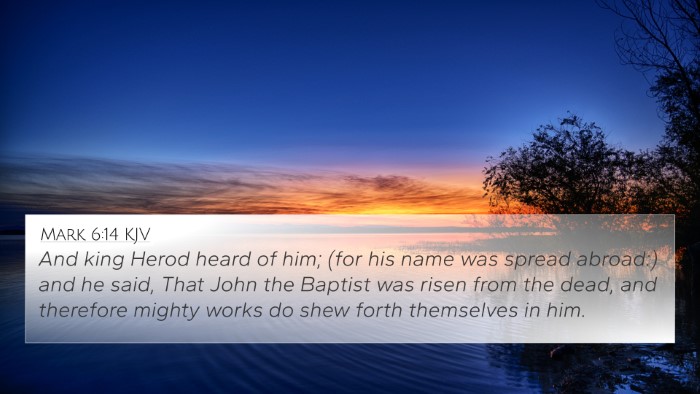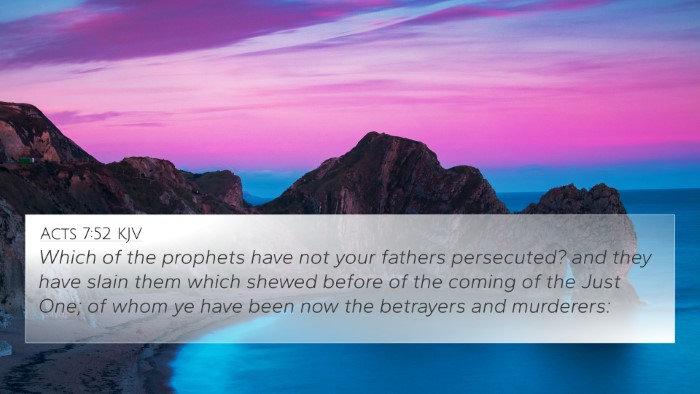Meaning and Interpretation of Mark 9:13
Mark 9:13 states: "But I say unto you, That Elias is indeed come, and they have done unto him whatsoever they listed, as it is written of him." This verse is significant as it emphasizes the themes of prophecy, fulfillment, and the recognition of God’s messengers throughout the Scriptures.
Contextual Analysis
This passage occurs shortly after Jesus' transfiguration and addresses the misunderstanding surrounding John the Baptist's role as the forerunner of the Messiah. The verse indicates that the abuse and rejection of John the Baptist parallels the treatment of the prophets in Israel's history.
Commentary Insights
-
Matthew Henry highlights that the mention of Elias (Elijah) points to John the Baptist as he came in the spirit and power of Elijah. The rejection he faced is akin to the rejection experienced by Elijah in times past.
-
Albert Barnes emphasizes that this verse demonstrates the pattern of how God’s chosen servants are often met with hostility and disregard. He draws connections between this rejection and the treatment of other prophets throughout biblical history.
-
Adam Clarke points out that the “writings” refer to Old Testament prophecies, specifically how the suffering of God’s prophets was foretold. Clarke elaborates on how this reflects the nature of wickedness in humanity and disobedience to divine authority.
Cross-References
The verse has several connections with other scriptural passages that illustrate similar themes:
- Malachi 4:5-6 - Prophesies the coming of Elijah before the great day of the Lord.
- Matthew 11:13-14 - Jesus identifies John the Baptist as Elias in the context of fulfillment of prophecy.
- Luke 1:17 - Mentions John’s role as the forerunner, turning hearts back to God.
- Acts 13:25 - Paul's acknowledgment of John’s significant yet brief ministry before Jesus' own.
- Isaiah 40:3 - Prepares the way for the Lord, emphasizing the role of a messenger.
- James 5:17 - References Elijah’s fervent prayers and suffering, paralleling John’s ministry.
- Luke 9:8 - Indicates the recognition of John in the eyes of some, brought into the conversation regarding Jesus’ identity.
Thematic Biblical Connections
Thematic connections between these verses reveal how John the Baptist functions as a pivotal character linking the Old Testament prophetic traditions with the New Testament revelation of Christ. His ministry serves as a bridge, fulfilling preceding prophecies while delivering a message of repentance.
Reflection on the Rejection of Prophets
The rejection of prophets, evident in Mark 9:13, prompts reflection on the nature of faith and acceptance of God’s messengers today. The historical context serves as a lesson for the contemporary believer about the importance of recognizing and responding to the voice of God through His chosen servants.
Conclusion
Mark 9:13 encapsulates critical truths about the continuity of God’s redemptive plan. By examining the insights from public domain commentaries, readers gain deeper understanding of the significance of prophetic fulfillment, the acknowledgment of scripture, and the enduring nature of divine communication.









